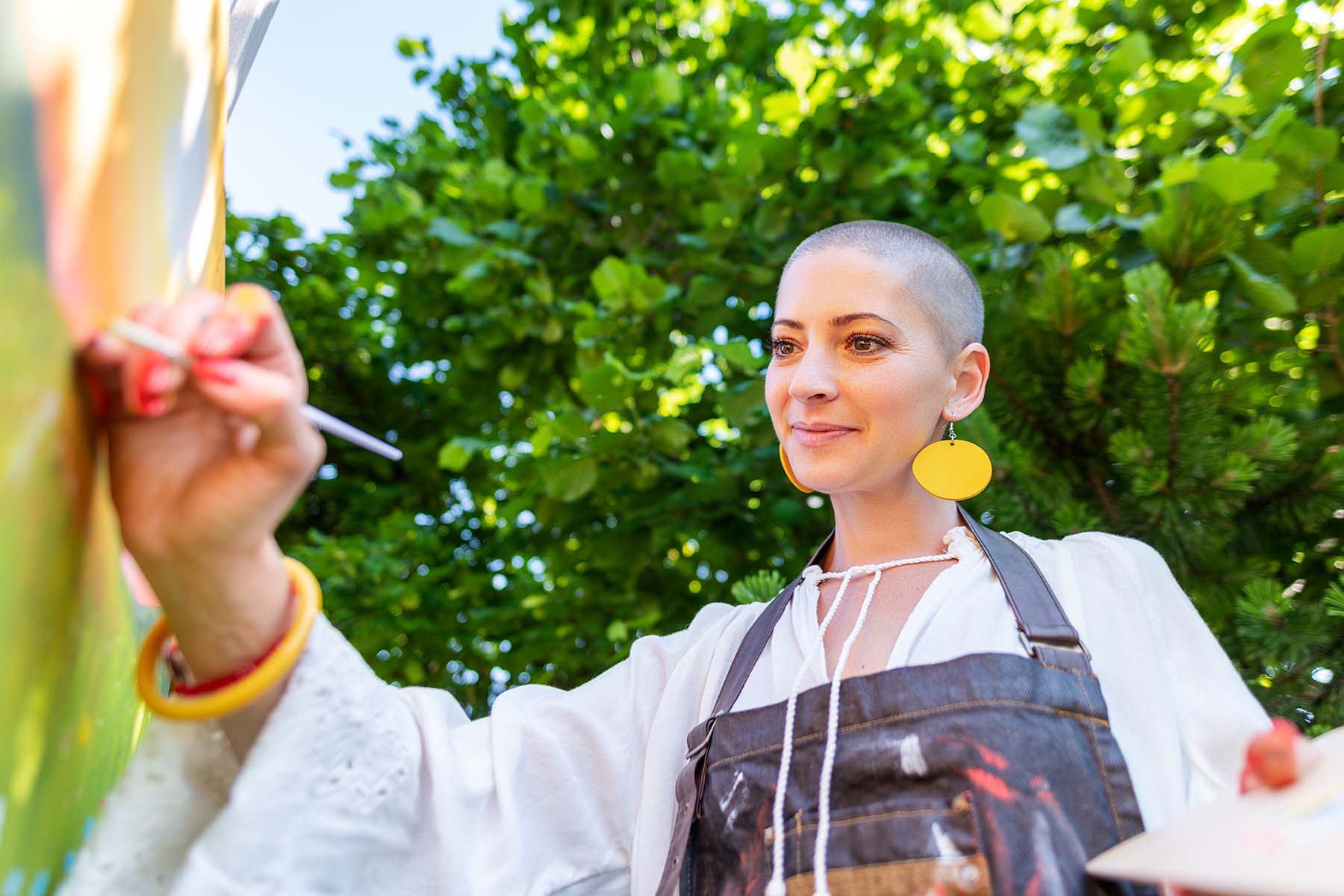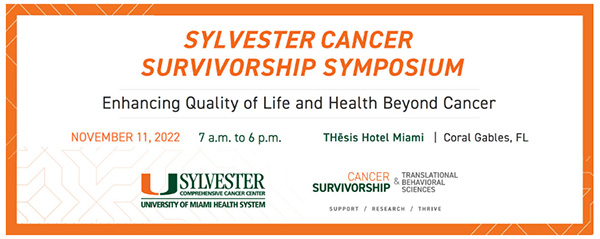Art Therapy: More Than Just a Coping Skill

A woman makes tentative brushstrokes on a blank sheet of paper. Brilliant blues and greens flood the whitespace as her first watercolor painting emerges. Keenly focused on the task at hand, for a few precious moments, she forgets she has cancer.
She has reached a “state of flow,” says Lindsey Weaver, M.A., A.T.R., an art therapist with Sylvester Comprehensive Cancer Center, part of the University of Miami Health System. “Art therapy is good for retraining your brain to what you want it to focus on, for getting into that state of flow where time flies by, and you’re not thinking about anything else.”
Creating art is believed to promote physical, mental, and emotional wellness. Art therapy helps patients process feelings and helps therapists understand what areas to explore with the patient. Weaver says how and what a patient draws or paints indicates certain emotions.
The subconscious comes out through art.
Lindsey Weaver, art therapist at Sylvester
Weaver, who works with patients and families through Sylvester Cancer Support Services, describes her discipline as “a combination of art and psychology to promote healing. It’s an additional way to communicate with the patient, to guide the conversation, and to increase awareness of what is going on.”
Studies have shown that art therapy helps with pain management, promotes mindfulness, and helps relieve stress and anxiety. A review of scientific literature stated that art therapy “could possibly help decrease symptoms of anxiety and depression and improve quality of life in adult cancer patients.” Another NIH study said art therapy may “maximize the quality of life in pediatric oncology patients.”
Creativity is good for your health.
Art therapy isn’t just a pleasant pastime for mental health. Using art and talk therapy together, Weaver strives to achieve specific goals for patients, such as:
- Alleviate anxiety and depression
- Improve cognitive and sensorimotor function
- Foster and enhance self-awareness, self-esteem, and self-worth
- Cultivate emotional resilience
- Enhance social skills
- Promote relaxation
- Understand and accept feelings
- Exercise a sense of choice and control
- Improve communication and self-expression
- Find a positive distraction during a stressful situation
- Feel validated, heard, and supported
- Process grief
- Improve mood and focus
Patients and their families can use art “as an outlet and a coping skill,” Weaver says.
There’s no wrong way to make art.
Not everyone is keen on the creative process at first.

“Many adults are intimidated by art, but there’s no wrong way to go about it. You can’t mess up,” Weaver says.
Participants choose the medium in which they want to work. If someone isn’t comfortable drawing, they can use magazine pictures to make a collage or craft something out of clay.
At the start of each session, Weaver tells participants what to expect. “I check in to see where they are and what they want to explore. If a patient is feeling down, I might suggest a medium or subject to boost their mood.”
Sylvester’s art therapy program is currently offered on an outpatient basis for patients undergoing treatment. Families and friends are also encouraged to attend.
“Group art therapy helps people realize they’re not the only ones going through cancer,” Weaver says.
In the near future, she will provide individual in-person sessions in Sylvester’s inpatient and chemotherapy units and community art therapy sessions via Zoom. Sylvester also offers art therapy to nurses and staff who provide cancer care.
To become a licensed, certified art therapist, Weaver completed visual arts and master’s of art degrees before pursuing additional academic and clinical training, as required by The American Art Therapy Association.
To learn more about art therapy through Sylvester Cancer Support Services, call 305-243-4129 or email Lindsey Weaver.
Nancy Moreland is a regular contributor to UMiami Health News. She has written for several major health care systems and the CDC. Her writing also appears in the Chicago Tribune and U.S. News & World Report.
The public and health care professionals are invited to attend the Sylvester Cancer Survivorship Symposium on November 11, 2022.

For more information, email [email protected].
Tags: art in Miami, art programs in health, cancer care in Miami, cancer support, council for art therapy, emotional health, Lindsey weaver, reduce stress
